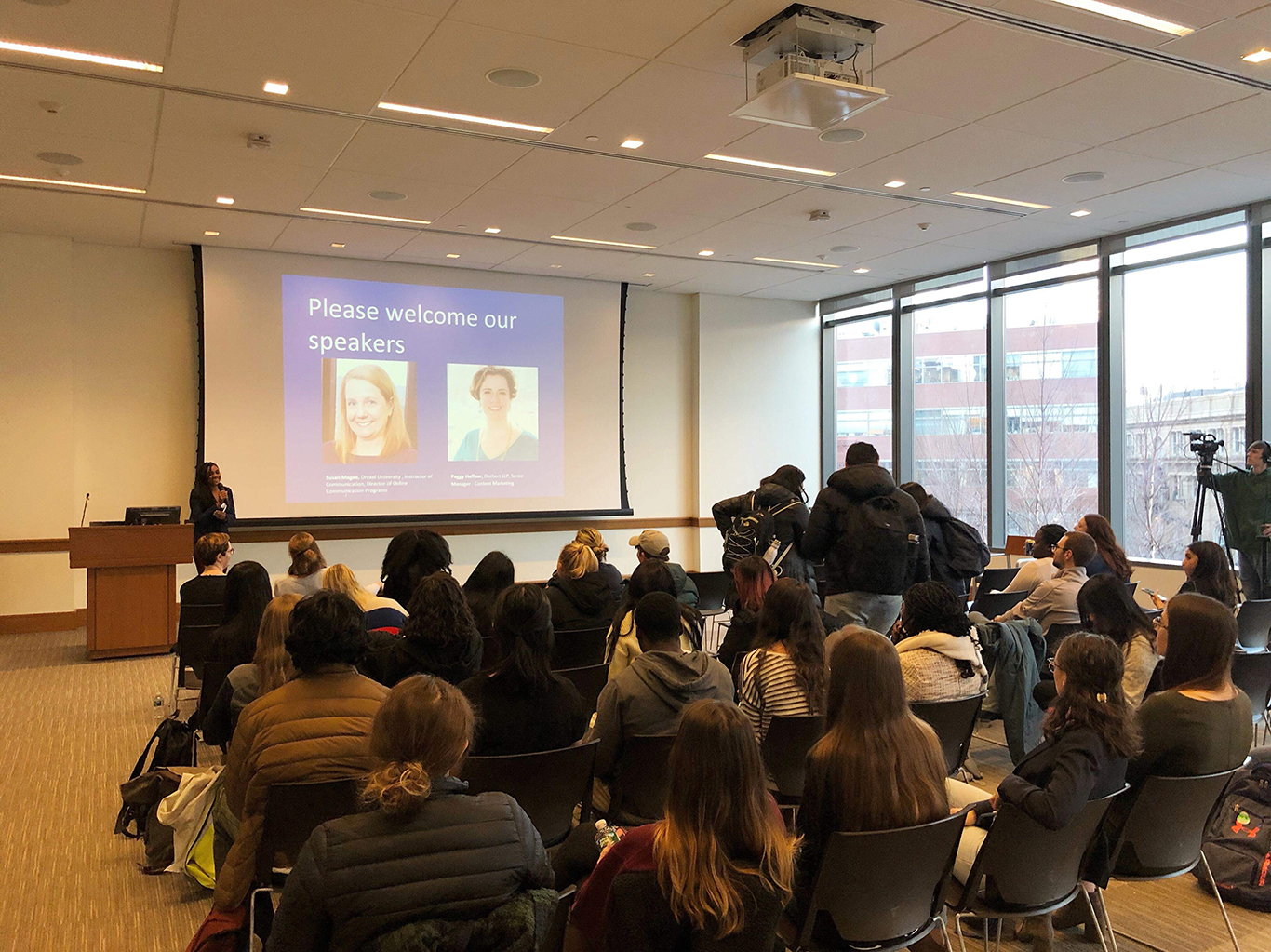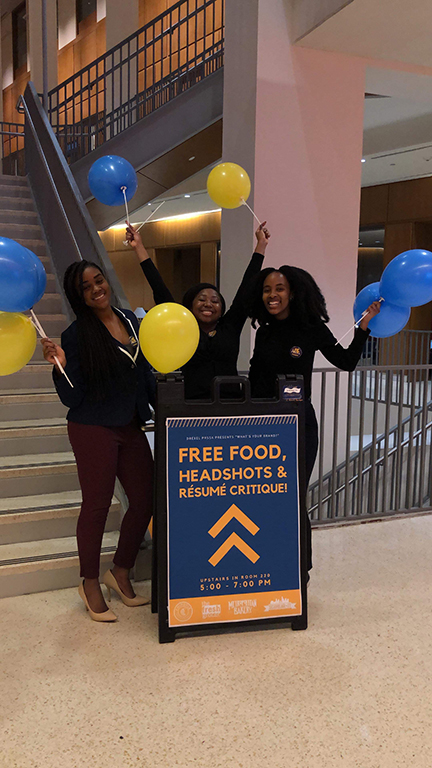
Drexel’s Public Relations Student Society of America hosted an event called “What’s your brand?” March 7 in LeBow’s grand meeting room.
The room was in no way full, but students gradually trickled in to listen to Drexel communications professor Susan Magee and communications professional Peggy Heffner talk about the importance of promoting oneself to potential employers. With the spring/summer co-op cycle just around the corner, this information was certainly a hot topic issue, especially to any students in c-round of the co-op search process.
When Magee kicked things off by asking students if they knew how to write a brand statement, not one student raised their hand. She followed up by asking, “how many people are worried?” and immediately lots of hands shot up. It was evident how students were feeling about their prospective job searches and careers in general.
When it comes to building a personal brand, Magee put a lot of emphasis on the question of “what do you want to be known for?” However, she was simultaneously very understanding that this is a big question to ask students at this point in their lives. She quickly relayed that it’s not hard to do at all and explained what a branding statement is.
“A branding statement is how you distill what you want employers to know about you in one, two or three sentences,” Magee said.
Magee said that in order to do this, students need to only follow five steps: one, have faith.
“We wouldn’t still be in business if we let people out before they’re ready,” she said.
Two, ask for feedback. Magee stressed that this step can not be skipped and that people are willing to give meaningful, open-hearted help to students who are eager to receive it. Three, choose your three best attributes. When doing so, be sure to address your expertise, character and drive. Four, create a branding statement. Here’s where the big question was finally addressed.
In building one’s own brand statement, all that needs to be done is finish three easy sentences: I am … I help … I understand/do … so that … voila! And lastly, five, never stop.
Magee stressed that selling yourself is a constant process that one must shamelessly do to the best of their ability in order to stand out.
“Candidates who use superlatives do better,” Magee said when referencing an assessment of resumes and cover letters.
This was something Magee stressed a great deal. She expressed that it’s a good sign if students are worrying about being too self-flattering when presenting themselves to employers.
“If anything people need to be more hyperbolic, you’re the one that gets to toot your own horn before others will do it for you,” Magee said.
Heffner followed by giving a presentation of LinkedIn essentials for students to be aware of including the headline, headshot, cover photo, short summary and important features to address like privacy settings, network and activity. Overall, Heffner’s advice was to be authentic and share content just as students would on any other social media platform.
Interaction with professional networking services like LinkedIn is an obvious concern that is not being addressed enough as Heffner shared that 590 million people used LinkedIn, yet only 40 million are college students or recent college graduates. A big factor in this seems to be which departments actually stress the importance of branding upon their students, she said.
Public relations students have clubs and organizations like the PRSSA and even classes worked into their curriculum to ensure that they are on track to market themselves successfully to employers. However, when it comes to other Drexel students, the same attention is not as readily available.
Sophomore electrical engineering student Jamie Wu, who attended the event, expressed a similar sentiment. Wu struggled to find a job in a-round and had to go to b-round before she received the offer that would become her upcoming co-op.
“I struggled a lot to get one but that was rough because I didn’t know any of that like how to market myself, how to brand myself, how to do resume stuff — I had to come here,” Wu said.
She mentioned feeling that resources like the COOP 101 course aren’t always enough, especially for those in STEM fields of study who are not pushed to focus on things like branding as frequently as other Drexel students.
Sophomore biology major Hannah Kostan agreed.
“We have to make the effort to come and learn about it,” she said.



